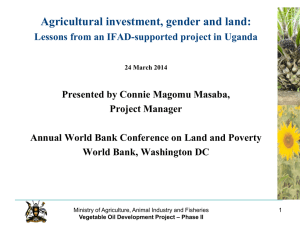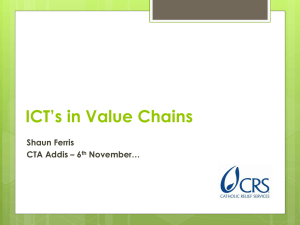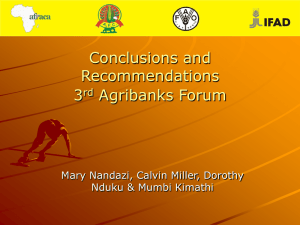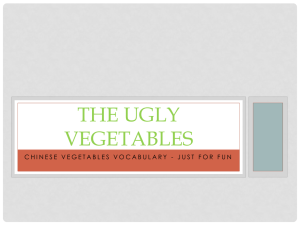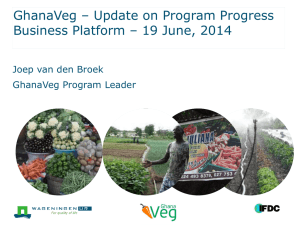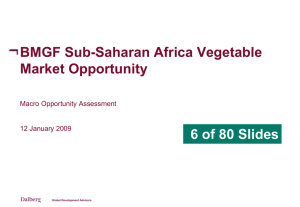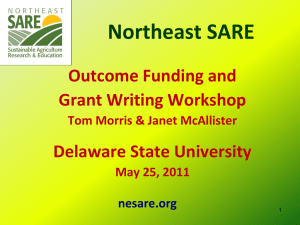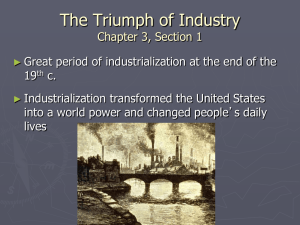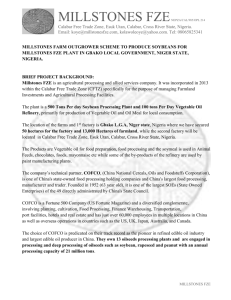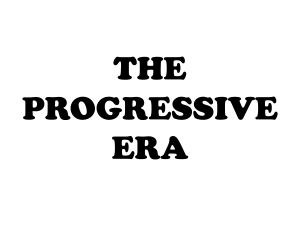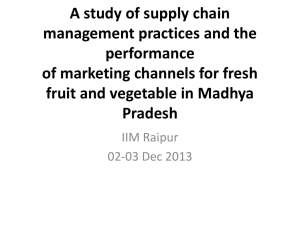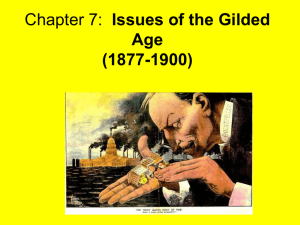Business model
advertisement
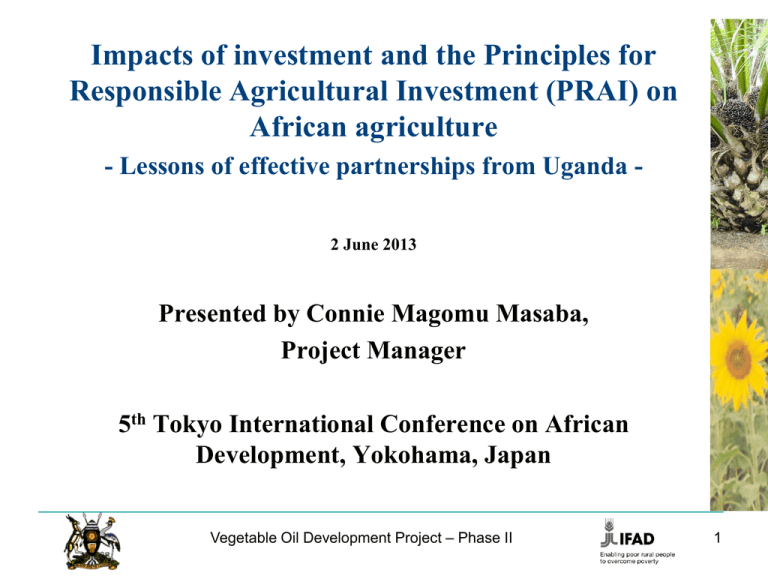
Impacts of investment and the Principles for Responsible Agricultural Investment (PRAI) on African agriculture - Lessons of effective partnerships from Uganda 2 June 2013 Presented by Connie Magomu Masaba, Project Manager 5th Tokyo International Conference on African Development, Yokohama, Japan Vegetable Oil Development Project – Phase II 1 PPP for oil palm development Main partners: smallholder farmers, Government of Uganda, IFAD and private sector (OPUL – made up of BUL & other shareholders) Support production and processing of oil palm to reduce reliance on imported vegetable oils and address low per capita vegetable oil consumption Combining small-scale production with largescale processing and integrating small-scale producers into the wider economy Vegetable Oil Development Project 2 Business model - Overview Hybrid: Nucleus estate/contract farming/joint venture Smallholders: 1,600 farmers (600 women) harvest ffb & sell to OPUL; cultivate 3500ha Kalangala Oil Palm Growers Trust (KOPGT): Intermediary between OPUL and farmers; provides services to farmers (extension, loans, transport,…) Oil Palm Uganda Limited (OPUL): Buys ffbs; manages nucleus estate of 6500ha and oil palm mill GoU: Purchases and leases land for nucleus estate; support smallholder involvement (including KOPGT); transportation infrastructure Vegetable Oil Development Project 3 Business model - Overview Vegetable Oil Development Project 4 Business model - Ownership Farmers have a 10% minority share in OPUL and BUL owns the remaining 90% Land rights remain vested in smallholders, while BUL leases nucleus estate For nucleus estate only unencumbered public land was used, the rest was purchased from private owners on a willing seller-willing buyer basis Support provided to increase access to land for poorer HHs (encumbered public land, purchased private land, land fund) Vegetable Oil Development Project 5 Business model - Voice Wide consultations with farmers and communities before implementation Farmers can influence decision making of company: 10% share in OPUL Representation on OPUL board Representation on Oil Palm pricing committee Representation on the services cost panel Farmers’ interests represented by KOPGT and KOPGA Democratic elections Representation at different levels (units, blocks, district) Annual general meeting Women cover at least 1/3 of the leadership positions Vegetable Oil Development Project 6 Business model - Risks Stakeholders bear different risks: Smallholders: Purchase price determined through fluctuating market prices (mitigation: import parity price) Production risks linked to weather, pest and other factors affecting harvest (mitigation: loans and “in kind” repayment system) Production risks linked to land tenure situation (mitigation: demonstration of legitimate access to land) Risk associated with loans (mitigation: co-guaranteeing approach, loan not tied to land) Risk of having ffb unduly rejected (mitigation: inspection officer) OPUL: Market risk as it has committed to purchase produce at guaranteed prices (demand is still very high) High investment in processing (mills & refinery) Vegetable Oil Development Project 7 Business model - Reward Farmers: Fair price through price formula Say in decision-making of company Access to support package (extension, inputs, etc.) and credit Assured market for produce Private sector: Increased production Increased sales Co-investment by farmers and government Government: Increased tax incomes Increased investment in agriculture Poverty reduction in the districts of Kalangala & Buvuma Import substitution of crude edible oil, with prospects of future exports to the region Vegetable Oil Development Project 8 Early results Farmers: Increased incomes ($390/month/hectare for mature plantations) Improved land rights (landless and women, purchase of land, demonstration of legitimate access to land) Community: Creation of employment (2,000 employed on nucleus estate, 500 in farmer gardens and 1,600 directly as farmers) Improved infrastructure (e.g. 750 km of road network and ferry service) and services (e.g. financial and public) Production in other crops, livestock and complementary agricultural activities, tourism and other non-agricultural enterprises is expanding Vegetable Oil Development Project 9 Early results cont’d Forest reserves are now clearly demarcated and illegal logging is down Less reliance on dwindling fish stocks Contribution of OPUL to the local government revenue of Kalangala District is being invested in improving facilities (schools, clinics, etc.) and infrastructure (roads and electricity) Increased economic activities (business and tourism) Vegetable Oil Development Project 10 Lessons Learned Effective partnership between rural smallholders and the private sector with positive development outcomes is possible Governments can play a positive role in agricultural investment projects (policy environment, mobilising smallholders, infrastructure and building trust) Choice of the business partners is very important willingness to work with smallholders Inclusion of smallholders in all decision-making processes has been key to the project’s success Building partnerships takes time Vegetable Oil Development Project 11 Conclusion Business models that support local farmers are more promising and make good business sense Farmers have proved to be highly dynamic and responsive to market forces Success of partnerships depends on the level of ownership, voice, risk-sharing and benefit-sharing between partners Mutually beneficial partnerships require sustained support by a range of service providers (government, civil society, private sector) Vegetable Oil Development Project 12
